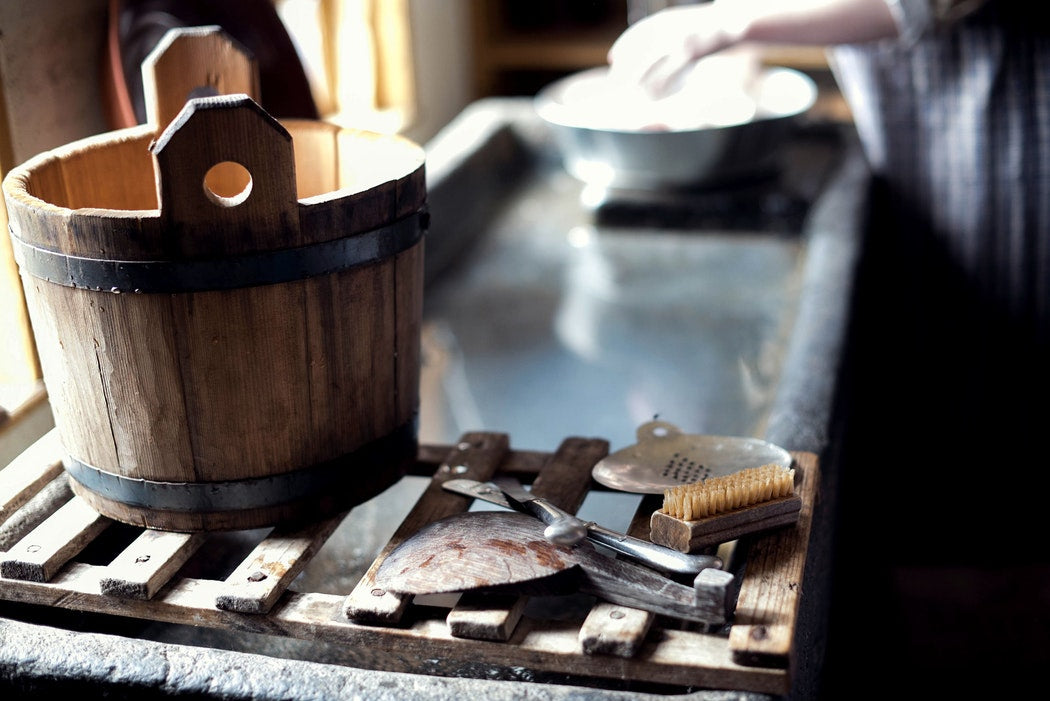When doing laundry was a collective event
Does doing laundry seem tedious? Imagine life in the Middle Ages, long before the invention of washing machines. At that time, laundry was a real physical and social ordeal, carried out by hand by washerwomen, courageous women who gathered twice a year to clean families' laundry.
Infrequent laundry… but very intense
In the 12th century, laundry was only done once a year. It was not until the 13th century that the practice evolved to two major laundry sessions, known as the Grandes buées (Great Buoys ). These highly ritualized moments took place in spring and autumn and lasted three days.
The first day, Purgatory, consisted of sorting and soaking the linen in a large terracotta tub, called a vat. The second day, Hell, lived up to its name: the washerwomen poured increasingly hot, sometimes boiling, water to purify the linen. The weight of the wet linen, combined with the heat, made this work exhausting and dangerous. Finally, the third day, Paradise, saw the linen taken to the washhouse to be beaten, rinsed, and then wrung out. Once clean, the linen found its place in the homes... and the washerwomen, their breath.
The washhouse: a place for laundry and gossip
But laundry wasn't just a chore. It was also a social occasion. The washhouse became a veritable theater of local life, where tongues were loosened faster than the knots of laundry. It was there that secrets, deceptions, arguments, and sometimes even breakups were discussed. Hence the origin of the well-known expression: "washing one's dirty linen in public."
A proverb perfectly summed up the atmosphere of these places: "At the washhouse, we wash the clothes but we dirty the people."
A little poetry to conclude
Laundry has even inspired poets. Achille Millien (1838–1927) created a living tableau of it, mixing noise, gossip and precise gestures:
It's here, from morning to night,
Only by the tongue and the paddle
We're washing the whole city.
We speak loudly, we hit hard,
The paddle beats, the tongue bites!
To be a skillful washerwoman,
It must be proven in front of witnesses
How agile the beater is,
That the language is no less so.
Today, doing laundry has become much simpler, but this household chore hides a rich history, between tradition, mutual aid and community life.





Leave a comment
All comments are moderated before being published.
This site is protected by hCaptcha and the hCaptcha Privacy Policy and Terms of Service apply.